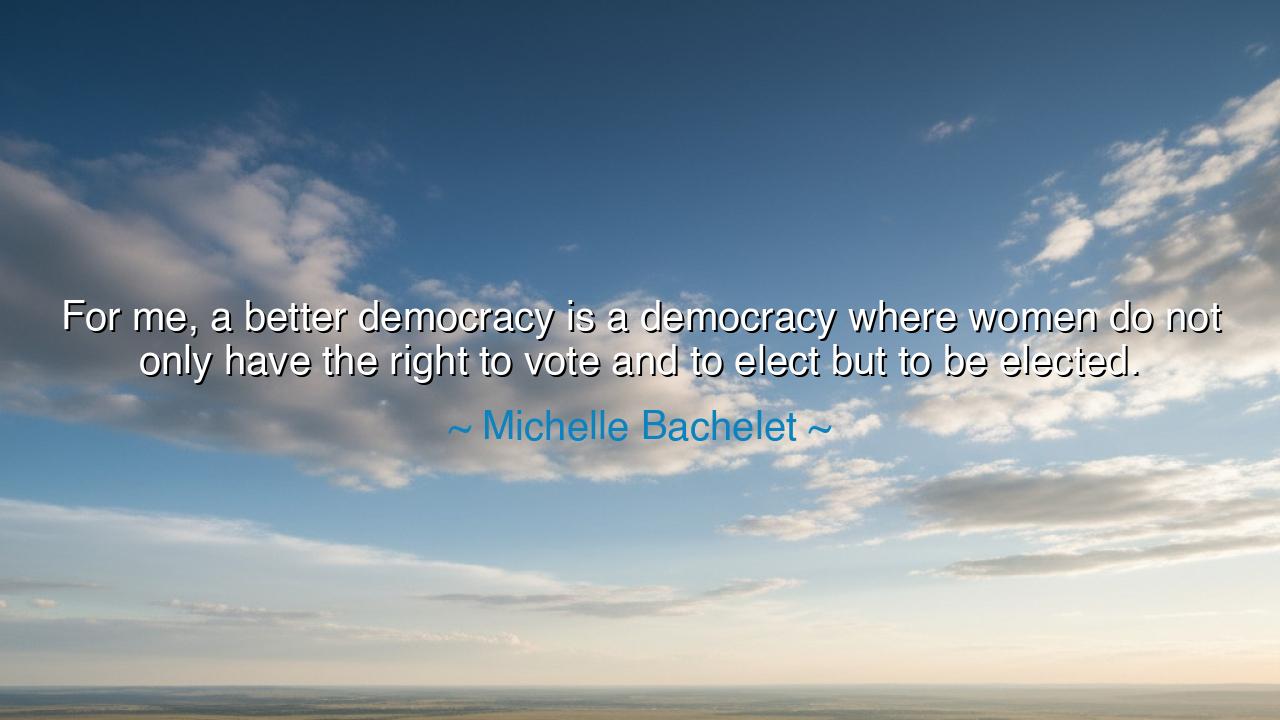
For me, a better democracy is a democracy where women do not
For me, a better democracy is a democracy where women do not only have the right to vote and to elect but to be elected.






The words of Michelle Bachelet — “For me, a better democracy is a democracy where women do not only have the right to vote and to elect but to be elected.” — shine like a banner raised in the long march toward justice. She proclaims that democracy cannot be whole when women merely cast their ballots; it is complete only when they themselves stand as leaders, lawmakers, and rulers. In her vision, participation is not enough — representation must be real, visible, and powerful.
The meaning of her words lies in the distinction between token inclusion and full equality. To grant women only the right to vote is to make them participants but not architects of society. A true democracy demands their voices not only in the chorus of the people but also on the stage of decision. Bachelet reminds us that power must not flow in one direction alone; women must not only choose leaders but also be chosen as leaders, shaping the laws and destinies of nations.
History bears testimony to this truth. For centuries after men gained suffrage, women remained silent in the chambers of power, their voices muffled though their ballots were counted. In the United States, it was not until 1916 that Jeannette Rankin became the first woman elected to Congress, even after millions of women had fought for the right to vote. In Bachelet’s own Chile, the struggle for women’s political participation was long and arduous, yet she herself would rise to become the nation’s first woman president, embodying the very principle she proclaims.
The origin of her declaration rests in her dual experience as a physician, activist, and head of state. Having lived through dictatorship and exile, Bachelet understood that democracy is fragile, and that its strength lies in inclusivity. Her words reflect both personal triumph and collective struggle: she spoke not for herself alone, but for all women who still stand outside the gates of power, waiting for them to open.
Therefore, O seekers of wisdom, learn this lesson: a tree cannot flourish when half its roots are starved of light. A democracy that denies women full participation is crippled, halved, and incomplete. As Bachelet teaches, justice requires more than rights on paper; it requires space at the table, power in the chamber, and voices rising in every council. Only when women both elect and are elected will the promise of democracy bloom into its true and radiant form.






AAdministratorAdministrator
Welcome, honored guests. Please leave a comment, we will respond soon